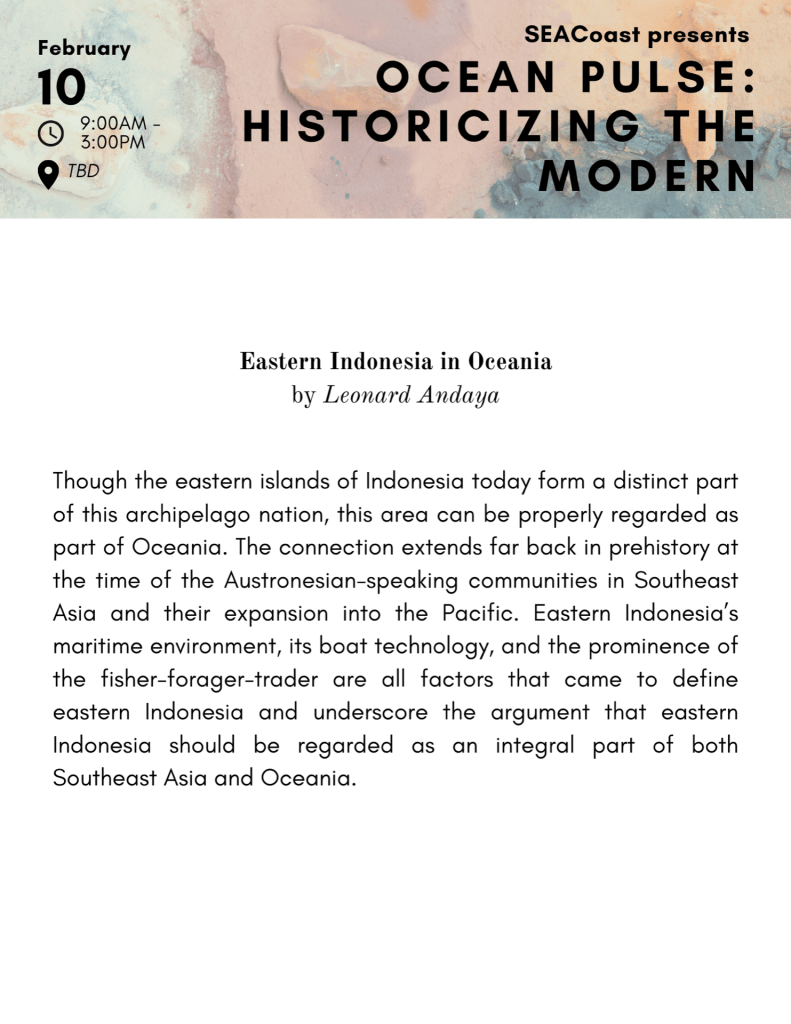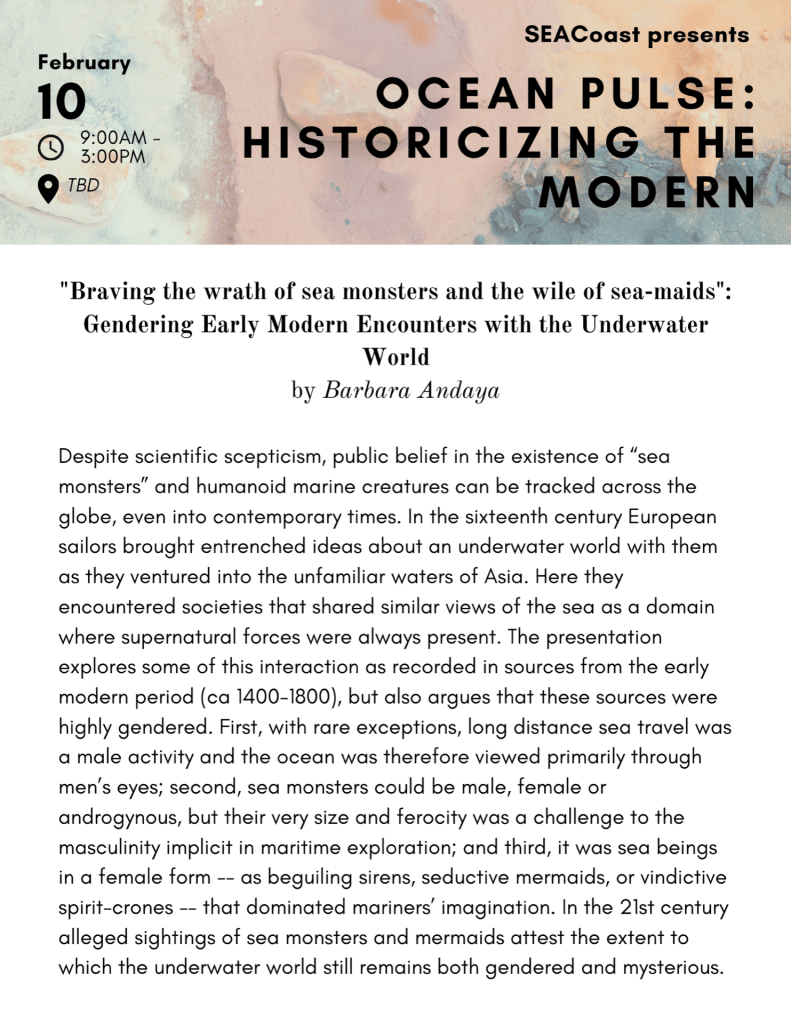Maritime Southeast Asia is a region that has been defined by deep histories of cultural exchange, regional and global trade networks, and multiple, fluid maritime polities. Historians have shown how the flow and exchange of goods, peoples, and ideas shaped the diverse epistemic conditions upon which trade and later colonial relations were perceived and negotiated. Here, modern categories of difference, including race, animality, and binaries of gender, sexuality, and self-other, encounter divergent forms of tractions, frictions, and slippages—all of which are still being worked through in contemporary modern Southeast Asian societies. Diving into historical currents and navigations, we take a closer look at the indeterminacies of modernity and the processes that contribute to its reification and discontents.
As we navigate these complexities, we are fortunate to have SEACoast Muse Mentors for this year, Professors in History, Leonard and Barbara Andaya, who will each deliver a talk that draw from their ongoing works, Pacific History from the View of Eastern Indonesia, and “Braving the wrath of sea monsters and the wile of sea-maids”: Gendering Early Modern Encounters with the Underwater World, respectively (abstracts attached).
Each talk will be followed by roundtable discussions with UCSC’s very own, Professors Carla Freccero (History of Consciousness), Sharon Kinoshita (Literature), and Vanita Seth (Politics). We are grateful to be hosting these distinguished scholars from different disciplinary fields, and to bring their groundbreaking work and ideas into conversation with each other.
We would love for you to be a part of the conversation at the two events we have planned for Ocean Pulse. Please see below for more details and links to register. Event flyers are also attached, for you to circulate in your networks that are local or close to Santa Cruz for this in-person event.
If you have any questions, please write us a seacoast@ucsc.edu.
Slow Seminar on Leonard and Barbara Andaya’s works
3.50 – 5pm | Monday January 30th, 2023 | Social Sciences 1, Room 261
This seminar is an opportunity to read and discuss some of Leonard and Barbara Andaya’s key arguments about the broader currents of trade, colonial, ethnic, sexual, and gender relations that have shaped maritime history and spatial imaginations in Southeast Asia.
Readings
Leonard Andaya’s articles:
2001.The Search for the ‘Origins’ of Melayu. Journal of Southeast Asian Studies.
2000. A History of Trade in the Sea of Melayu. Itinerario, European Journal of Overseas History.
Barbara Andaya’s book:
To Live as Brothers: Southeast Sumatra in the Seventeenth and Eighteenth Centuries (full text)
Participants are asked to read the selected texts ahead of the seminar, and not to be discouraged if you are unable to get through all of the readings. Read as much as you are able, and feel free to focus on sections that are of particular interest to you!
Please REGISTER here for event location and updates.
Talks by Leonard and Barbara Andaya & Roundtable discussions
with Carla Freccero, Sharon Kinoshita, and Vanita Seth
9am-3pm | Friday Feb 10, 2023 | Namaste Lounge, College 9 UCSC
09:00-09:15 Opening Remarks by SEACoast Directors
09:15-10:15 Talk by Leonard Andaya: Eastern Indonesia in Oceania*
10:15-10:25 Coffee Break
#1
10:25-11:25 Roundtable Panel
by Vanita, Sharon, and Carla
11:25-12:10 Lunch
12:10-13:10 Talk by Barbara Andaya: “Braving the wrath of sea monsters and the wile of sea-maids”: Gendering Early Modern Encounters with the Underwater World*
13:10-13:20 Coffee Break
#2
13:20-14:50 Plenary Discussion
Please REGISTER here for event location and updates.



